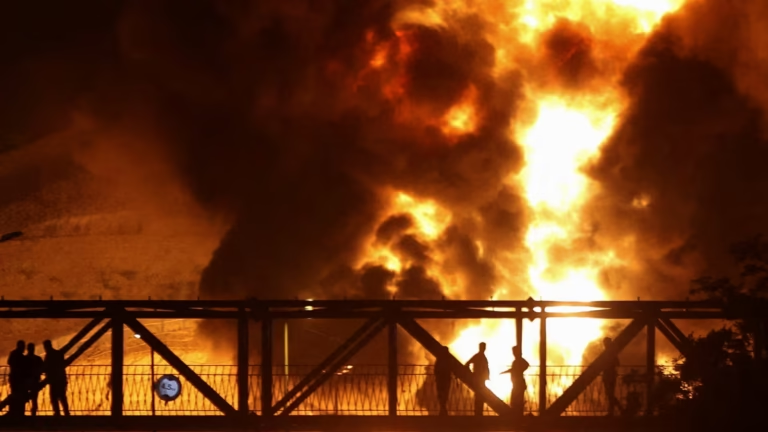Russia’s relationship with the Middle East is complicated. On one side, Russia has strong allies and economic ties in the region. On the other, as a major oil and gas producer, Russia profits when instability hits this energy-rich area.
This tension is clear now. Russia watches its ally Iran suffer from intense Israeli airstrikes. Yet, Moscow gains from the rising oil prices triggered by the conflict.
At first glance, Russia seems to have much to lose. Iran has been a key strategic partner. Both countries share a dislike of Western influence. Iran also supplied Russia with many Shahed drones used against Ukraine.
While most drone production has moved to Russia, the loss of Iran’s support may hurt as Ukraine strikes Russian factories. Still, the Kremlin cannot intervene as Iran faces heavy attacks, causing a subtle humiliation for Moscow.
Russia has condemned Israel’s attacks on Iran’s nuclear sites. It called the strikes illegal and said they threaten global security. Russia also accused Western nations of using the conflict for political gains.
However, Russia’s alliance with Iran does not extend to military help. No offer of support has come from Moscow.
If Iran’s regime falls, as Israel seems to aim for, Russia would lose another Middle East ally. The Kremlin has already lost influence in Iraq, Libya, and Syria.
Yet, this crisis also works in Russia’s favor. Rising crude prices bring financial gains. More importantly, the conflict opens diplomatic doors for a Russia isolated by the Ukraine war.
Russia has always viewed itself as a key global player, sharing a seat with the US and China at the international table. Now, it has a chance to cooperate with the US on a shared concern: the Middle East.
President Vladimir Putin holds direct contacts with Iran, Israel, and the US. He is positioning Russia as a mediator in the conflict, enhancing Moscow’s role as a power broker.
Recently, Putin called the White House, reminding President Donald Trump of Russia’s past support on the Iranian nuclear issue. This was a clear signal that Russia wants to return as a partner.
The White House seems open to this. After the call, Trump showed willingness to consider Russia as a mediator in the conflict.
Since Trump’s second term began, Washington and Moscow have looked for ways to broaden ties beyond Ukraine. Iran’s nuclear ambitions, Arctic cooperation, economics, and space are areas of potential shared interest.
For the Kremlin—and possibly Trump—this is a major advantage.
It is less good news for Ukraine. As the Middle East crisis worsens and the US debates more direct involvement, global focus shifts away from Ukraine. Meanwhile, Russia’s attacks on Ukraine grow deadlier.
For now, world attention is on Moscow’s role as a Middle East peacemaker. This focus moves away from Russia’s ongoing war near its own borders.







